
The Business of Fashion
Agenda-setting intelligence, analysis and advice for the global fashion community.

Agenda-setting intelligence, analysis and advice for the global fashion community.
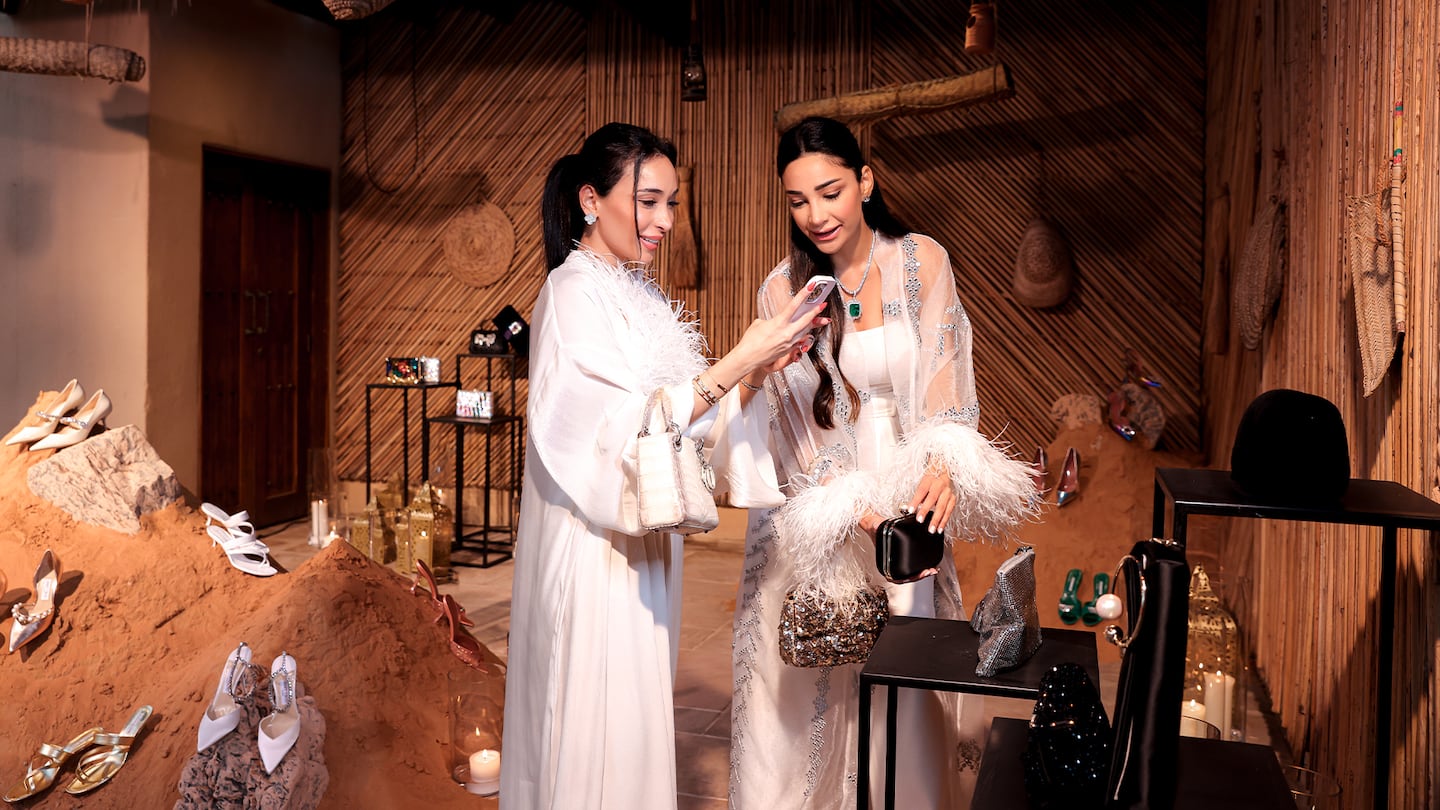
Dubai’s fashion VIPs have been busier than usual recently. In just one evening, Valentino, MCM, Miu Miu and Marli all hosted marketing activations for top-tier clients and industry insiders across the city. The crowded roster of attractions was typical of the level of activity throughout much of the 30-day Ramadan period this year.
“This has now become the norm during the Ramadan season,” said Reem Kanj, partner at Dubai-based marketing agency Maison Pyramide and co-founder of influencer management agency Ego & East. “With the number of international brands who have entered the market and the rise of homegrown brands, it has become inevitable for multiple events to take place in one evening.”
The holy month of Ramadan, which started on Mar. 10 this year, and is expected to end on Apr. 9 ahead of the Eid-al-Fitr celebrations, is one of the most anticipated occasions in the Islamic calendar. A time for spirituality and reflection, the month sees Muslims around the world gather with family and friends to open their fasts at iftar and connect over a late night suhoor meal. Ramadan is also known to bring one of the biggest annual upticks in consumer spending for Muslim-majority countries across the Middle East, with food, fashion and gifts being key categories.
“Ramadan’s traditional emphasis on new attire being reserved for Eid, luxury segment spending patterns typically slow in Ramadan’s early weeks, picking up as Eid approaches,” said Ashley Cadzow, founder of Sunday Media, a Dubai-based creative marketing agency that manages and produces campaigns for brands such as Van Cleef & Arpels, IWC and the Dubai Mall.
ADVERTISEMENT
This means there is currently a lot at stake for luxury brands in Dubai, the preferred shopping destination across the entire GCC region of Gulf Cooperation Council countries comprising not only the United Arab Emirates but also Saudi Arabia, Kuwait, Bahrain, Qatar and Oman.
Valued at $10.5 billion in 2023, the GCC luxury goods market is forecasted to grow to $13.7 billion by 2028, demonstrating a CAGR (compound annual growth rate) of 5.42 percent over the five-year period, according to a Mordor Intelligence report.
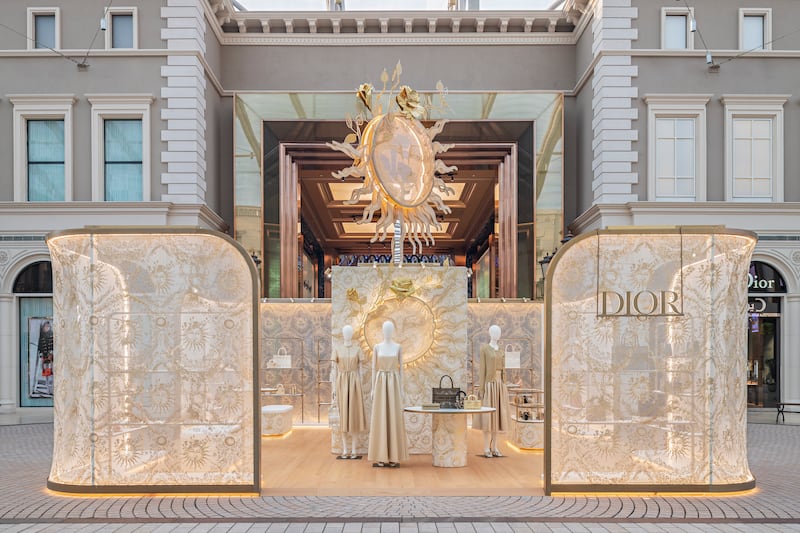
The rush to cater to affluent clients during Ramadan has caused a bottleneck of activity within the 30-day period. With people fasting during the day, brands are limited to engaging with them — and industry insiders — exclusively between the hours of 6pm and midnight. In Dubai, this has led to a saturation of brand-led iftar and suhoor events.
“Not only does this [endless rotation of brand activity] run the risk of becoming repetitive and tiresome, it also takes away from the true meaning of Ramadan — a time for self-reflection, goodwill, charity, and quality time with family and friends,” said Kanj. “There is a growing acknowledgment of this among luxury and fashion brands [in the region] and many of them are consciously working to integrate these elements into their messaging and positioning.”
The escalating humanitarian crisis in Gaza, a result of the ongoing Israel-Hamas war, has also been a major consideration this year — for brands and consumers alike. People in the wider region have become even more attune to the need for solidarity and compassion during the holy month. The marketing calendar may busier than ever, but the tone and focus of campaigns have changed, with overly ostentatious and frivolous activations risking a backlash.
“There seems to be a prevailing sense of melancholy,” said Hatem Alakeel, the chief executive of Saudi luxury consulting agency Authenticite Middle East and designer behind the brand Toby by Hatem Alakeel. “The current socio-political landscape has cast a shadow over the usual festive atmosphere associated with Ramadan. This year Ramadan in Saudi Arabia is marked by a blend of celebratory events and a sober acknowledgment of the challenges facing the wider Middle Eastern community, creating a nuanced landscape for brand activity and consumer engagement.”
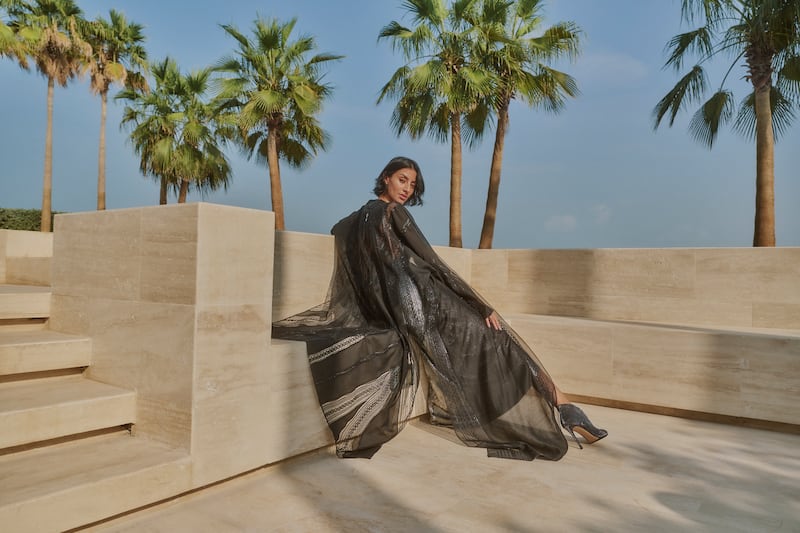
Balancing commercial and client interests, brands have had to find ways to maintain relevancy during Ramadan without appearing opportunistic or tone deaf. This has led to some deliberation among marketing teams.
“Internal brand debates on appropriate Ramadan greetings reflect a careful navigation of cultural sensitivities. Should our messaging wish people a ‘blessed’ Ramadan or a ‘happy’ Ramadan, is a very real internal conversation being had on multiple levels,” said Cadzow. “Although brands may steer clear of directly addressing [ongoing] crises in their campaigns, the profound impact on the region’s collective consciousness during Ramadan… is unmistakable,” he added.
ADVERTISEMENT
Treading carefully, some brands have pursued a more meaningful approach this year, opting for quieter event formats over those that make a big splash or favouring understated local hangouts over opulent luxury hotels.
Rani Ilmi, founder and chief executive officer of Frame Publicity, the Dubai-based luxury communications agency, has noted “a slower pace” in messaging and more people “embracing the traditions of the holy month” this year.
Another factor contributing to the relatively muted atmosphere has been the overlap between Ramadan and fashion month. This year marked the first time in 32 years that Ramadan started in early March, bringing about a new set of challenges for brands and retailers in the region. With Paris Fashion Week running until Mar. 5, and February being a critical period for the launch of Spring-Summer collections, brands had to balance global and regional priorities.
“They definitely scrambled,” confirmed Ilmi. “And communication was left to be more ‘direct-to-client’ because of the lack of time before Ramadan. From a media perspective, I don’t think the brands had enough time to pull together streamlined communication and have all HQs approve it.”
Although the mood is subdued, overall consumer spending during Ramadan across the GCC remains strong. Estimated to be worth $66 billion in 2023, according to a Redseer Consulting report, the market is poised for growth this year. Survey respondents in the GCC’s biggest markets of the UAE and Saudi Arabia indicated they intend to increase spending in 2024 on average by 64 percent and 56 percent respectively, according to Google’s Consumer Insights Ramadan 2024 report.
In a bid to better localise marketing activations and tackle the overbooked events calendar in Dubai, more luxury brands are investing in neighbouring cities and countries, with brands such as Dolce & Gabbana, Jimmy Choo and Michael Kors focusing on Abu Dhabi and Christian Dior, MCM and Tiffany & Co. hosting intimate events in Kuwait.
Brands like Fendi and Aigner skipped Dubai altogether, choosing Riyadh instead. The Saudi Arabian capital has seen a surge in Ramadan activity this year, with the likes of Longchamp, Chaumet and Okhtein hosting client and press events across the city.
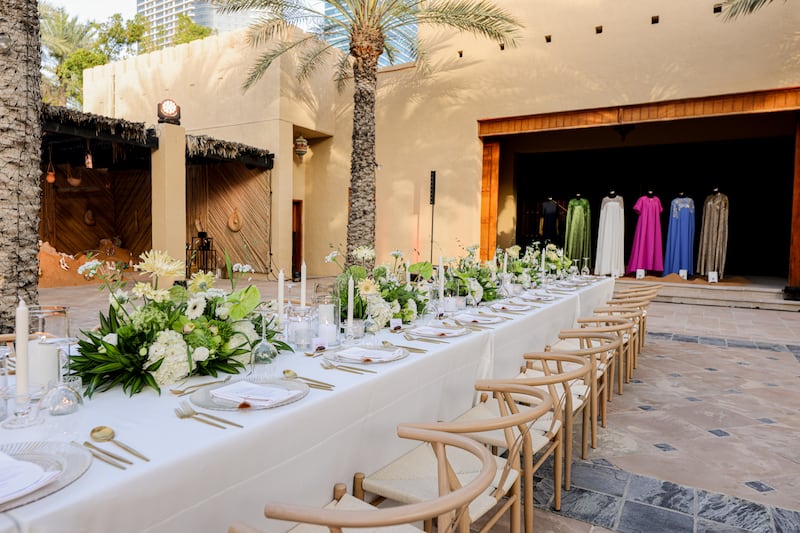
“Brands are looking to activate in multiple markets at the same time. There will be a constant shift in the next couple of years from luxury brands, with markets like Kuwait and Qatar gaining even more traction. However, it is Saudi Arabia which dominates the majority of the budgets. The spending power of the Saudi market is so strong that it drives luxury brands to activate there on a larger scale,” said Kanj.
ADVERTISEMENT
Brand activity in Qatar has been especially quiet this Ramadan, owing to the Gulf nation’s unique geopolitical position and intermittent role in the Israel-Hamas war negotiations. Although some luxury brands have hosted very private suhoor and discreet events for their VIP clientele in Doha, the majority have opted to forgo local plans due to heightened sensitivities.
Acknowledging the differences in culture and preferences across the diverse Gulf region, some brands adopted more nuanced and sophisticated localisation strategies this time around. Bulgari’s “Colours of Ramadan” campaign, for example, features Emirati influencer-turned-entrepreneur Mthayel Al Ali of Sharjah and Saudi actress Sumaya Rida alongside Qatari designer Abdulrahman Al Muftah and Kuwaiti music producer and DJ Hassan Ali.
Catering specifically to the ultra-private, high-net-worth Emirati client, who is typically deterred by surface-level, pan-Arab mass influencer campaigns, some luxury brands partnered with Emirati opinion leaders to co-create their Ramadan narratives. Notable partnerships include Van Cleef & Arpels’ collaboration with calligrapher Fatima Alketbi, Vacheron Constantin’s in-store art installations by artist Omar Al Gurg, and Miu Miu’s collaboration with chef Nawal Al Nuaimi to curate a menu for an experience at Kulturehouse, the Dubai-based dining concept co-owned by Sheikha Jawahir Bint Butti Al Maktoum.
However, other brands decided to go for regional resonance using more conventional celebrities and talent for their Ramadan campaigns, such as Lebanese-Australian model Jessica Kahawaty for Carolina Herrera, Saudi model Alanoud Al Turki for Repossi, and Iraqi influencer Dima Al Sheikhly for Michael Kors.
Another development this year has been the introduction of alternative event formats. Christian Louboutin’s first-ever branded hotel suite in the Middle East, at Jumeirah by Saadiyat Island as part Abu Dhabi Retail’s Layali Ramadan 2024 campaign, stood out for its elaborate take on the Ramadan fashion experience. On the other end of the spectrum, the brand also collaborated with influencer Basma Hamze to host an intimate iftar at her home, forging a deeper connection with her inner circle of family and friends.
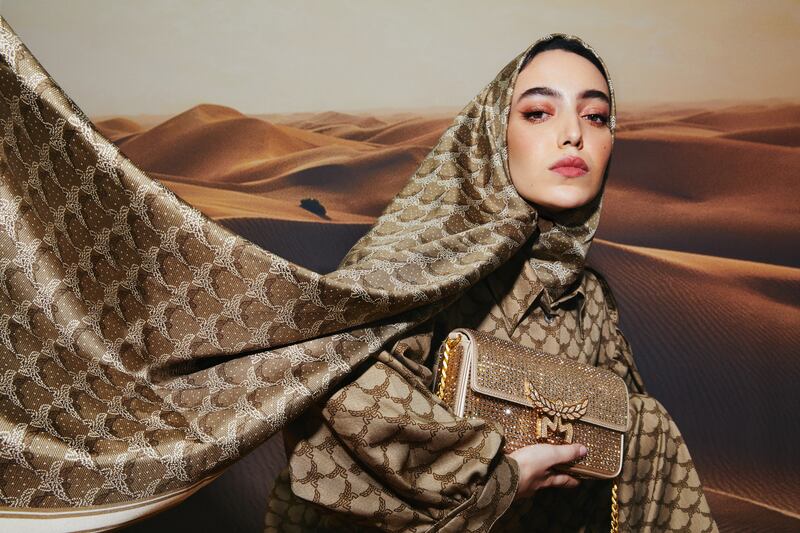
The contemporary majlis concept gained further momentum this year. Inspired by the traditional Arabic ‘sitting places’ where community members would gather to discuss local events, receive guests, socialise and be entertained, brand-led majlis typically allow people to engage with the brand in their own time and in their own social circles, offering a more authentic Ramadan experience as well as respite from the hectic events schedule.
Montblanc, for example, partnered with homegrown Levantine restaurant Ninive to create an immersive month-long Ramadan experience in Downtown Dubai and luxury department store Tryano partnered with Fil Café in Abu Dhabi. Bulgari, whose first majlis launched in 2018, brought back its annual experience at the Bulgari Resort.
Some brands chose to take over beloved local eateries for the entirety of the month, from Valentino’s collaborative experience with Somewhere, located in Dubai’s residential Jumeirah neighbourhood, and Erth in Abu Dhabi, the world’s first Emirati cuisine restaurant to receive a Michelin star, to Michael Kors’ takeover of No. Fifty Seven boutique restaurant in Abu Dhabi.
Events are not the only way brands are vying for wallet share and consumer attention. With countless high-street and luxury fashion names releasing dedicated Ramadan collections, edits or campaigns, the competition has become fierce.
In response, a growing number of international brands have launched capsule collections with a more “holistic approach,” said David Vercruysse, president of fashion, beauty and homeware at Chalhoub Group, a partner across the GCC for some of the world’s largest luxury brands including Louis Vuitton and Christian Dior.
“These collections go beyond mere fashion statements, encompassing various aspects of lifestyle and culture... [that] reflect a deeper understanding of consumer preferences and desires, offering them a more immersive and meaningful experience through fashion,” he added.
While increasingly localised Ramadan offerings are bound to capture a significant share of luxury spend at home, the outlook for luxury brands outside the GCC region is bright, with Arabian Travel Market forecasting ‘exponential growth’ in the region’s outbound travel market over the next five years, especially from leading markets the UAE and Saudi Arabia.
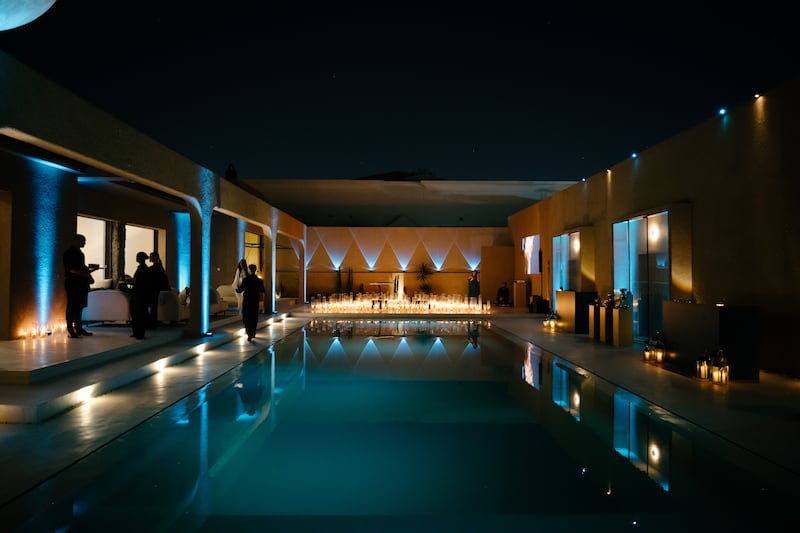
Pre-Covid, cities such as London, Paris and Milan were the go-to destinations for wealthy Gulf shoppers during the Ramadan and Eid-al-Fitr period, making the so-called ‘Ramadan Rush’ one of the most important seasons in the European retail calendar. Continental Europe and the UK remain the leading destinations for well-heeled GCC travellers, according to the Arabian Travel Market, and overseas travel is certainly top of mind for some GCC residents this year, due to the overlap of spring break and Eid holidays.
Online travel market Wego has reported a 70 percent increase in international flight bookings from the UAE during Ramadan, and a 400 percent increase in flight searches for Eid in comparison to last year.
In London, luxury brands regularly deploy dedicated marketing activations catered to the GCC customer. For example, this year department store Harrods collaborated with Qatari artist Mbarak Al-Thani to create Ramadan and Eid artworks for the façade of its Knightsbridge location and for use across its digital greetings.
Italian retailers and industry leaders also hope for an influx. “GCC travel picking up again [in Europe] could be a game-changing element for us,” said Stefania Lazzaroni, general manager at Altagamma Foundation, an association of major Italian luxury brands including Gucci, Valentino and Bulgari.
This week’s round-up of global markets fashion business news also features Latin American mall giants, Nigerian craft entrepreneurs and the mixed picture of China’s luxury market.
Resourceful leaders are turning to creative contingency plans in the face of a national energy crisis, crumbling infrastructure, economic stagnation and social unrest.
This week’s round-up of global markets fashion business news also features the China Duty Free Group, Uniqlo’s Japanese owner and a pan-African e-commerce platform in Côte d’Ivoire.
Affluent members of the Indian diaspora are underserved by fashion retailers, but dedicated e-commerce sites are not a silver bullet for Indian designers aiming to reach them.